Yulia Nykolyn
“We remain here – as continuation of our parents, a continuation of their history, their memory”
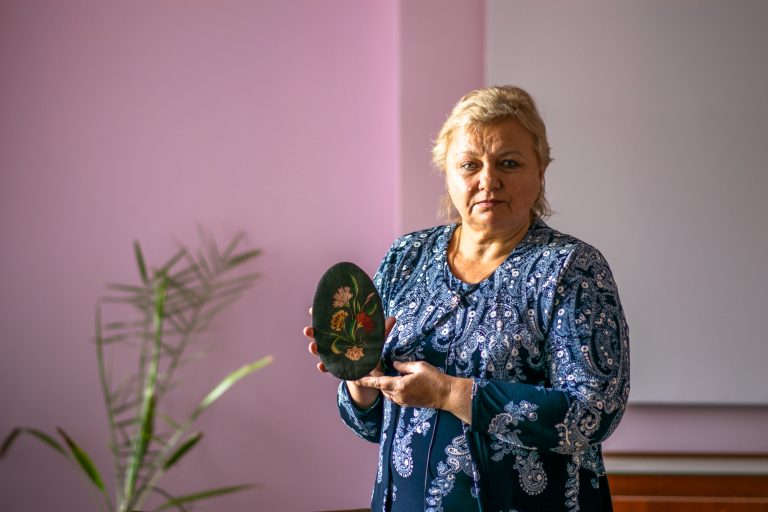
Yuliya Ivanivna Nykolyn was born on April 14, 1957, in the city of Baley – Chita region, Russian Federation.
Her father – Stets Ivan Mykolayovych (born in 1922, Kypyachka village, Ternopil region) – was a member of the Organization of Ukrainian Nationalists and the Ukrainian Insurgent Army. For this activity, he together with all his family was taken to Siberia. There the grandmother died, the mother went mad.
Her mother – Stets Paraskoviya Yuriyivna (born in 1928, Yosypovychi village, Lviv region), her maiden name was Dzibchak. At the age of 16, she joined the Organization of Ukrainian Nationalists, she was a youth leader. Here she received the pseudonym “Kalyna” and was engaged in organizing and collecting food, clothing, shoes for the insurgents. She provided communications and delivered food to the forest.
In 1945, during a raid in the village, one of the insurgents was caught – he was tortured and passed information about other members of the organization, including Stets Paraskeviya. Paraskeviya later recalled that she didn’t hold grudges against him because the tortures were terrible.
She was arrested and sentenced to 10 years in prison. She served her sentence in three concentration camps – Arelyuk, Antibez, Kangir. Her family because of “their daughter” was deported to a special settlement. After a year in Siberia, Paraskeviya’s father, a wealthy “kulak” peasant, died of longing for his daughter.
Yuliya Stets’ mother was a participant and witness of the uprising in Kangir in 1954 – the memory of these events was passed on to her daughter, who feels pain and recounts the events as if from her own memories:
“My mother was in barracks 13, that barrack was at the back, she said they put on embroidered shirts, because they knew that they would not get out of there, they would die. When they ran outside, the girls took each other’s hands, interlocked arms, and went towards those tanks. And the tanks were driving over those women… Can you imagine? At that moment, my mother said, there were three rows of women left in front of us, and then someone shouted, “Cease the fire!” And it all stopped. – We all stood, kissed, hugged… because we were saying goodbye to each other. We began to pray and sing. That’s how they survived. It was impossible to describe what was happening there, my mom said, it was just hell. There were so many cripples, corpses, dying people. There was blood all around. The mother said if I only saw that, the rivers of blood flowing, and they crossed it because they were ordered to leave the camp zone, those who remained. The cars arrived and those people were first loaded on the cars… About 600 graves were dug in the steppe, and those people were buried there. But my mom says there were alive people among them, you know, they were just wounded. And they dumped corps and wounded together.
Mom says as they went to work in the steppe, they saw those graves moving. People were buried alive. After that, a fire truck arrived, they started washing away the blood and took us out of the area, put us face down on the ground, and we were laying like that until the evening, until they washed it all away. Then they were taken to the camp zone, and then the authorities arrived from Moscow and began to analyze all those cases and my mother was one of the first to be released.”
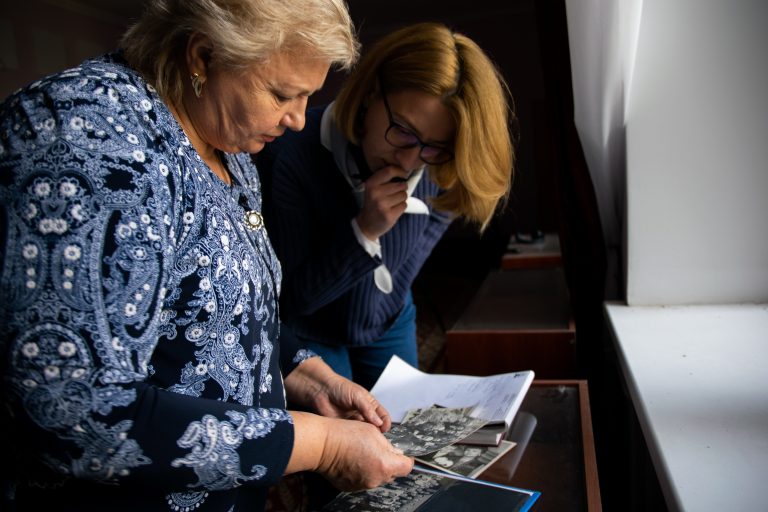
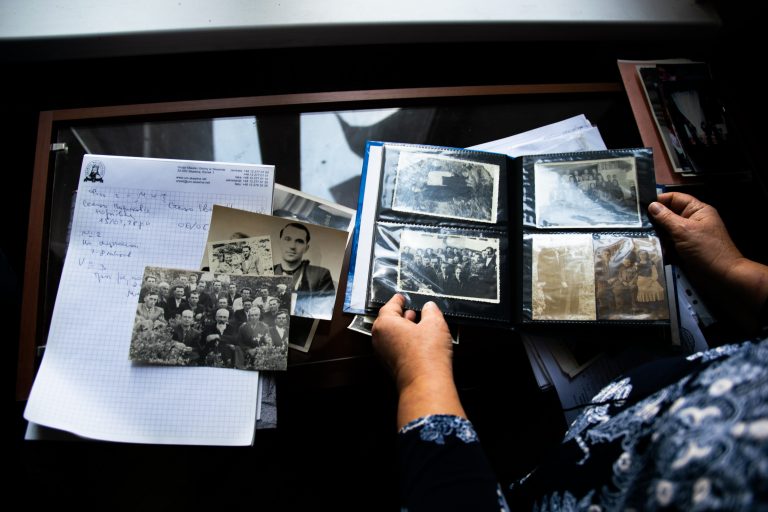
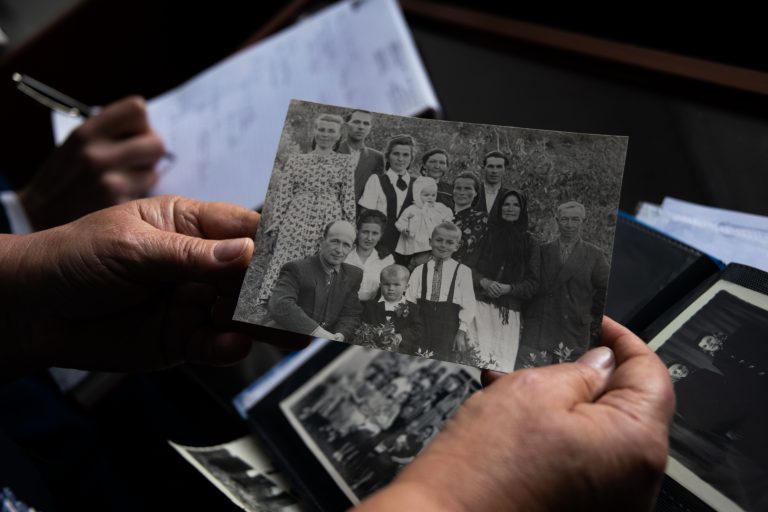
Yuliya’s parents met at a special settlement and got married in 1956 on the second day of the Christmas holidays, they invited all their relatives and friends, many of them lived around. The sacrament of marriage was conducted at night, secretly, by Father Bilyk, who was deported to Siberia for refusing to accept Orthodoxy.
When Yuliya was one and a half years old, the family returned to Ukraine from Siberia. They first came to their mother’s homeland, to Stryi district, they couldn’t get registered there and they were told to leave within 24 hours. They moved to their father’s homeland – to the village of Kypyachka. However, other people already lived in my grandfather’s house – displaced people from ethnic Ukrainian lands which were given to Poland. They settled at my father’s cousin. There my father was again called to the KGB and demanded to leave, but he refused because he was born there and wanted to live there. In any case, there was nowhere to go. The story was solved when the mother wrote a letter to Moscow – recalling a similar experience in Siberia, when, on the advice of a Russian, she contacted Moscow to have her passport returned.
The father had a wound on his right arm – as a child Yuliya sit at his laps, took father’s hand – and wanted to look closely at the wound, but he always hid it. And then little Yuliya began asking her mother: what happened to Dad’s arm? At first, the mother explained that it was a minor wound or a scar from surgery. However, Yuliya kept paying attention to the scar. Finally, the mother shared with her 5-year-old daughter a story: “I’ll tell you, but you know what our family is like, that we were in Siberia.”
The father used to be constantly called to the KGB – they were trying to persuade him to cooperate, the mother was often ill.
“And when I was in the first grade, I was much older than the other children, those who were with me. Then my parents started telling me more, but they always warned me not to tell anyone anywhere”, Mrs. Yuliya shares.
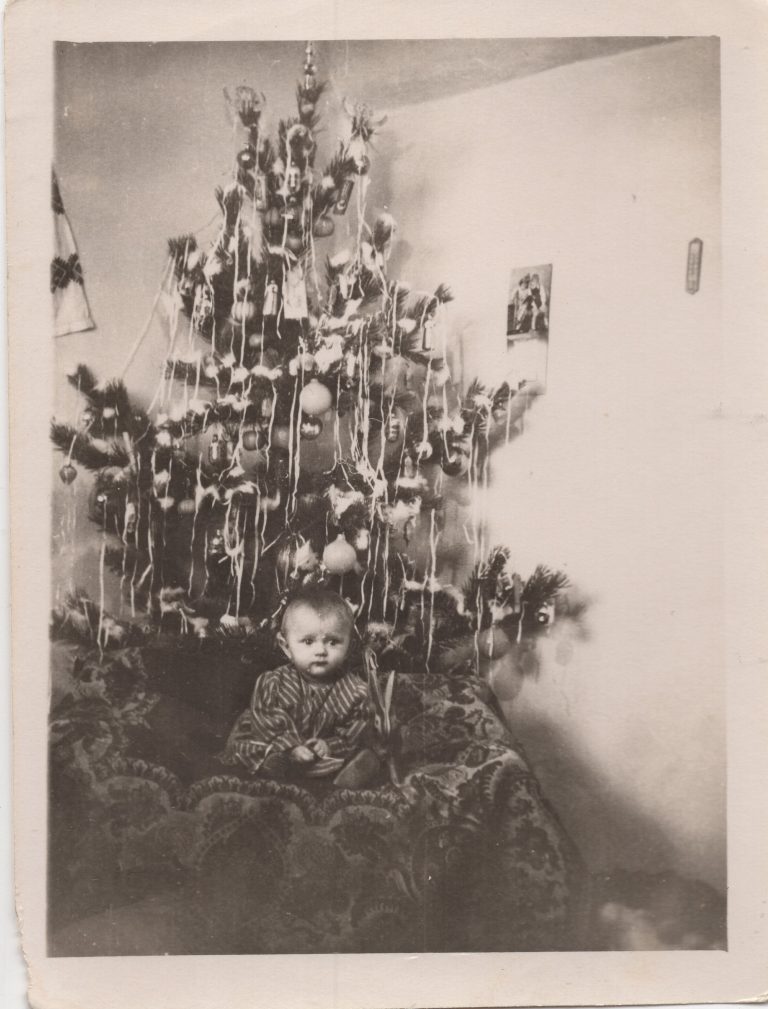
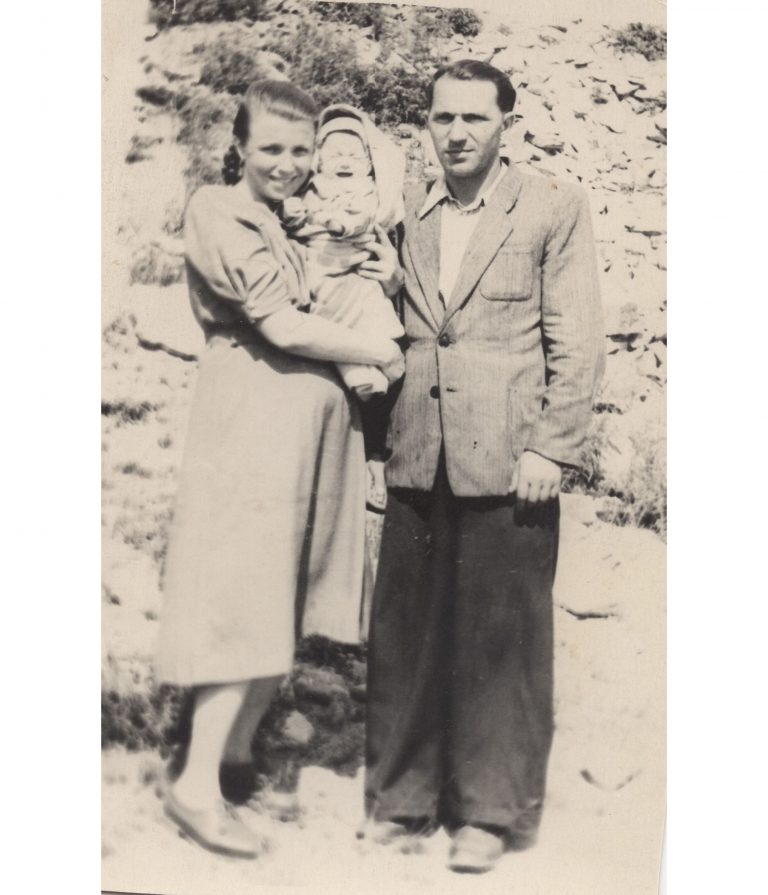
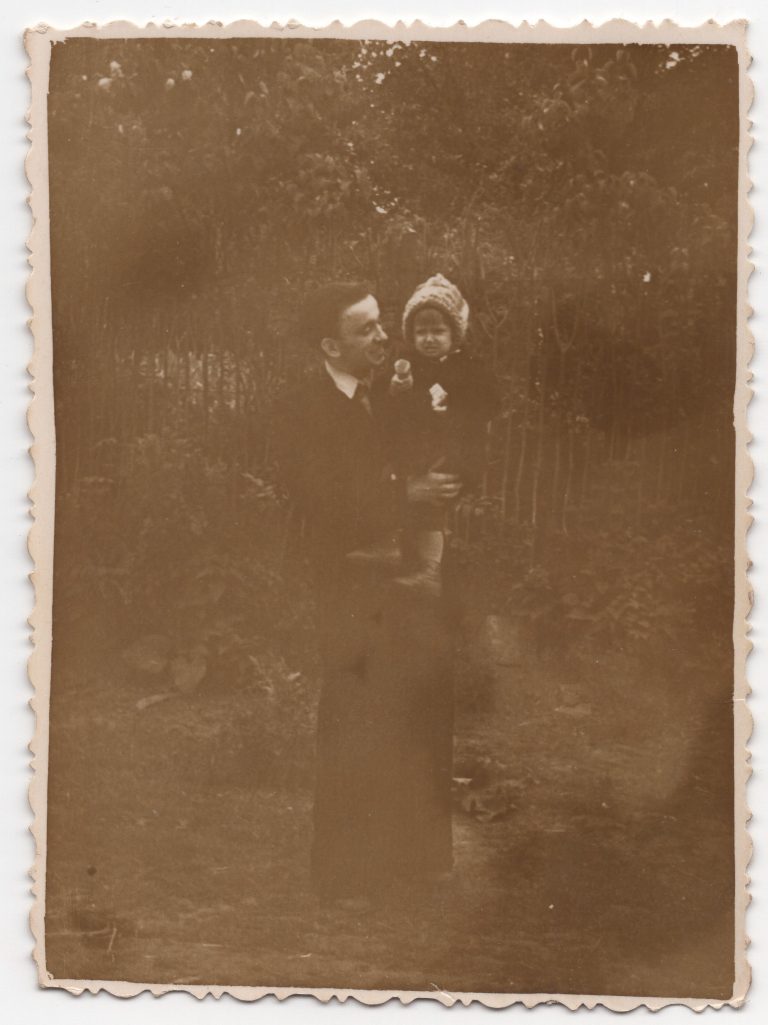
Arranging life in the village of Kypyachka, the parents created a place for meetings and conversations – a special reading house, where other families who left Siberia gathered: “And we had a reading house… Our family welcomed other families who were in Siberia to come over. There were three families in our circle – our family, Morozovych Ivan and Olha, and Nebesni Mariya and Mykhailo, we were close to each other. And they came to us, my mother read “Kobzar” and Lesia Ukrayinka, I knew the whole “Forest Song” by heart. They always remembered and told about Siberia, how everything happened, how my father was in the guerrillas. My mother told all the stories.”
“I entered the institute and my passport says Chita region, Baley, and I finished school well, I studied in Ternopil at school, my parents sent me to school here, to the 5th grade. And when I entered the institute, the rector called me for an interview and asked why I was born in Siberia… God sent me this thought: “You know, I didn’t choose my place of birth. Where they gave birth, at that place I was born,” and he says, “Look at her, you think you are smart?”. And I wasn’t accepted. I tried entering the institute for 3 years and entered for the third time. And after I graduated from the institute I learned that there was rector Yavonenko, he already passed away, and he took me on bail, he said he would take responsibility for me because the first department wasn’t letting me through the application process because I was an enemy of the people. Remember those were 1986, 1987 year. And I graduated with honors from this institute. And I wasn’t given a job at the institute. I worked as a laboratory assistant, but I couldn’t work as a teacher – no way. And then the Yavonenko offered me that from the New Year there will be a place and “I would take you…” I don’t know why he treated me so well, he was probably a nationalist man deep inside, but no one knew about it. When I graduated from the university, one person told me: “Yuliya, if it weren’t for Yavonenko, you wouldn’t be at the institute.” I am grateful to this man who stood up for me in those days and I get a chance to graduate from the university, “- for Mrs. Yuliya, the stigma of being born in special settlements and parents who were “enemies of the people” lasted a lifetime, but she retained faith in people, parents and love for Ukraine.
Yuliya writes poetry, just like her mother – for both of them – it was a way to deal with traumatic memory.
(word for word translation)
Not to fall on the ground. Not to become shallow.
Not to lose yourself. Find. Get off.
And extinguish hatred between hearts.
Find the word of truth without falsehood.
Light a hot spark of faith.
Do not incinerate in the furrows of troubles
Go through fire and water. Do not get smaller.
Do not die, but leave traces.
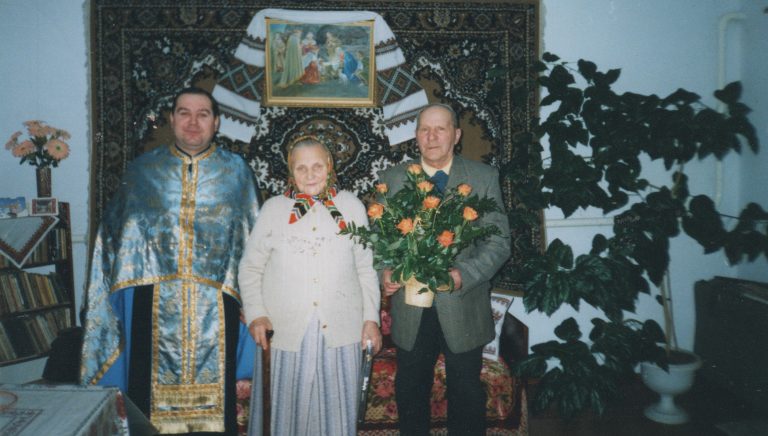
(photo: Yulia’s parents’ wedding)
Хто записував: Христина Рутар
Де: Тернопіль, Україна
Коли: 25 листопада 2020 року
Хто працював над записом: Христина Рутар
Проєкт: «Пам’ять України»
Інституція: Меморіальний музей тоталітарних режимів «Територія терору»
Біографію підготували: Христина Рутар та Ольга Муха
